第90章 ELEMENTARY LIBRARY INSTRUCTION(1)
Principles and methods and the part of the public library in giving library instruction are presented by Gilbert O.Ward,Supervisor of High School Libraries,Cleveland,Ohio,in Public Libraries,July,1912.This and its allied subjects are more comprehensively treated in several of the articles included in the first volume of the present series,entitled "Library and School."Gilbert O.Ward was born in 1880in New York City,and was educated in the New York City public schools.He was graduated from Columbia University in 1902and from the Pratt Institute Library School in 1908.In 1908-1909he was an assistant in the Pratt Institute Free Library.Since 1909he has been a member of the staff of the Cleveland Public Library,as librarian of the Technical High School in 1909-1910,and as technical librarian since 1910.From 1911to 1913he served as Supervisor of High School Branches.Mr.Ward has published "Practical use of books and libraries:an elementary textbook for use with high school classes."The term "elementary library instruction"is limited here to any instruction given in the technical use of books and libraries to students under college or normal school grade.
The object of this paper is to review briefly,(1)the reasons for giving such instruction,(2)subjects and some methods suitable for grade and high schools,(3)the part of the public library in giving such instruction.
The subject of bibliographical instruction for school children has become more important in recent years because of changes which have taken place in school methods.Schools now place much less reliance than formerly upon text-books,while on the other hand they require of the student more collateral reading and reference work.This is especially true in courses in English and history;for instance where the high school student formerly studied about Chaucer in a textbook,he is now more likely required to read a selection.
This method while more fruitful in results than the old text-book method presents new difficulties both to teacher and to student.
On the teacher's part,it is no longer sufficient to assign 10pages for study and have done with it.References must be consulted and assigned to the students for written or oral report.With the troubles of the teacher however,we shall have nothing to do in the present paper.On the student's part,instead of being able to sit down to a compact account in a single book,he is required to use perhaps a dozen books in the course of a month,to say nothing of possible magazine articles.
In fine,instead of a single book,he must use a library.The practical effect of this condition is that without some understanding of the scientific use of books and of the possibilities of either high school or public library,the student wastes his time and finds these studies an increased burden.The ordinary student is ignorant of how to handle books.
The primary purpose of formal library instruction is clearly then to do away with the friction which hinders the student in his or her work.There is no charm in bibliographical information as such and no excuse for attempting to teach a child merely curious or interesting facts for which he has no natural appetite or use.
An example of this mistake is the attempt to acquaint the student with very many reference books,or go deeply into the subject of classification.
The subject of library instruction in public schools conveniently divides itself into two parts,(1)instruction in grade schools,(2)instruction in high schools.I have elsewhere rather full tentative outlines by way of suggestion,and limit myself at this point to more general discussion.
In elementary classes,the subject matter must be simple,first because the needs of the student are simple,and secondly because it is more easily and willingly taught if simple.The subjects which suggest themselves are:(1)The physical care of a book,(2)printed parts of a book,(3)the dictionary,(4)the public library.
The physical care of a book comes naturally first because children have to handle books before they can read them for pleasure,or need to use them as reference helps.The subject is important both to librarian and to school boards because it affects the question of book replacement,and hence the expenditure of public money.Speaking broadly,it is a question of conservation.
The ordinary book,not the reference book,is the one with which the student will always have most to deal;therefore as soon as he is old enough,or as soon as his text books can serve for practical illustration,the important printed parts of the ordinary books can be called to his attention.It should be sufficient to include the title page (title,author's name,and date),table of contents and index.
The study of the dictionary (the first reference book)should be taken up first with the pocket dictionaries when these are used in class and the children should be practiced in discovering and understanding the kinds of information given with each word.
Then,when the unabridged is attacked later,the essentials will be familiar,and the mind freer to attack the somewhat complex problems of arrangement and added information,e.g.,synonyms,quotations,etc.
After proper care of books,and the use of an ordinary book,and the use of a simple reference book,the next natural step is to the use of the public library.The talk on the public library obviously includes some deion of the library's purpose and resources both for use and amusement,a very general deion of the arrangement of the books,possibly some deion of the card catalog--personally I am somewhat skeptical as to the utility of the card catalog for grade pupils--and finally,possibly an explanation of the encyclopedia.